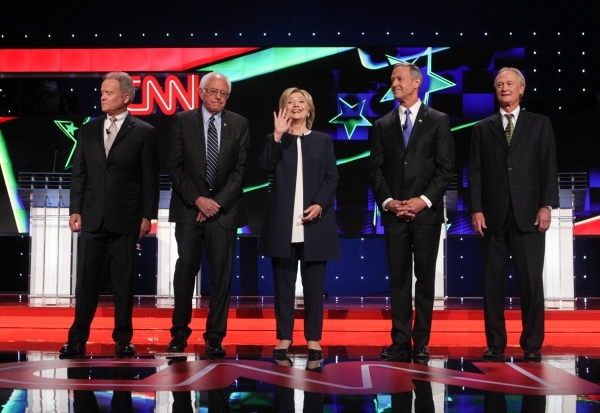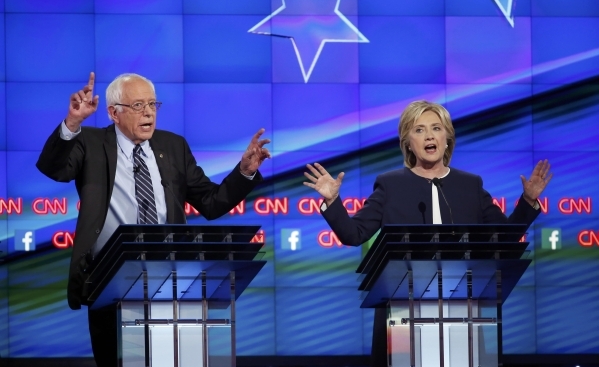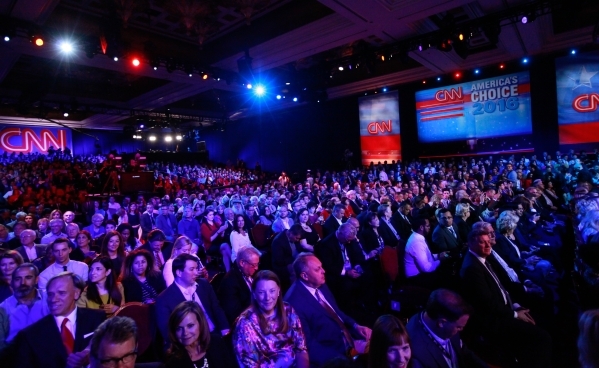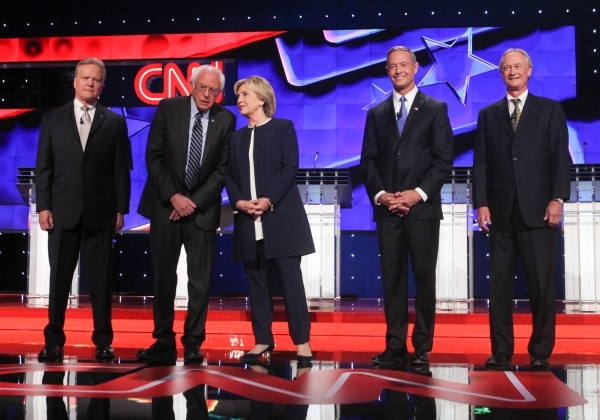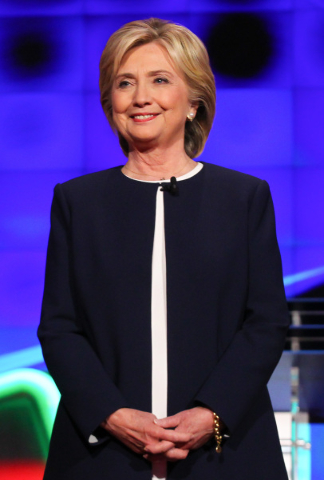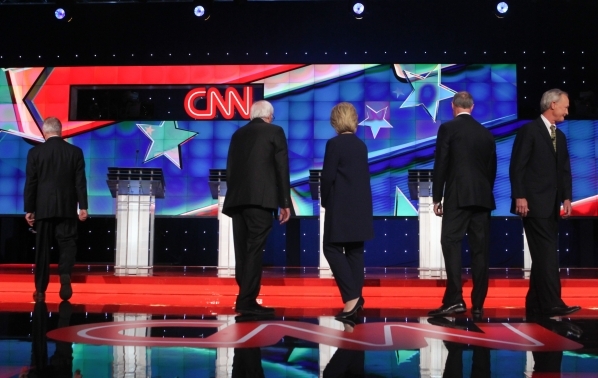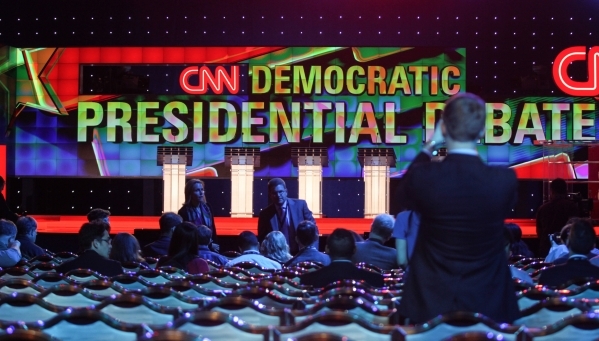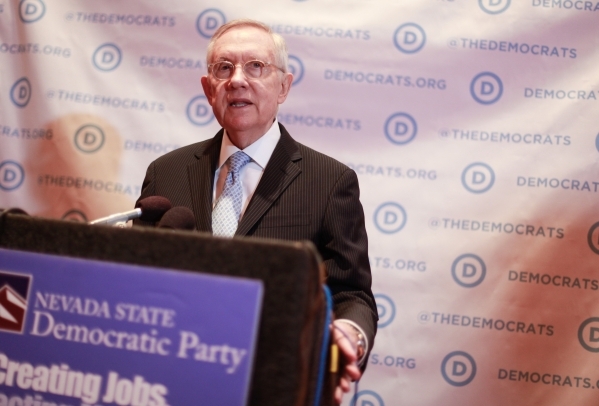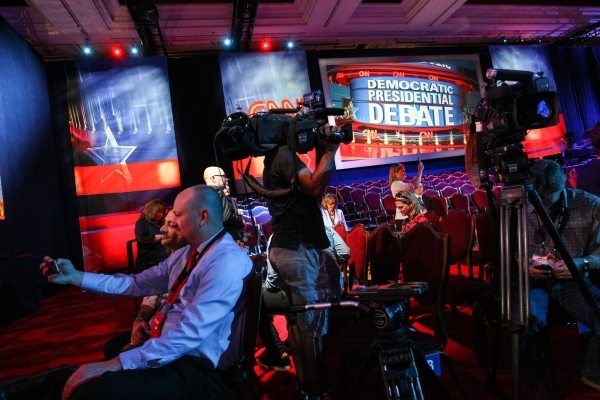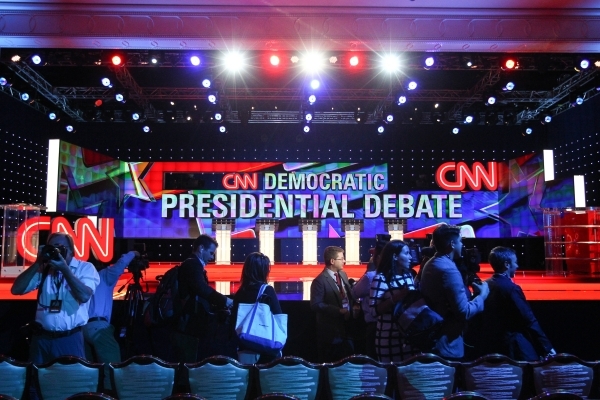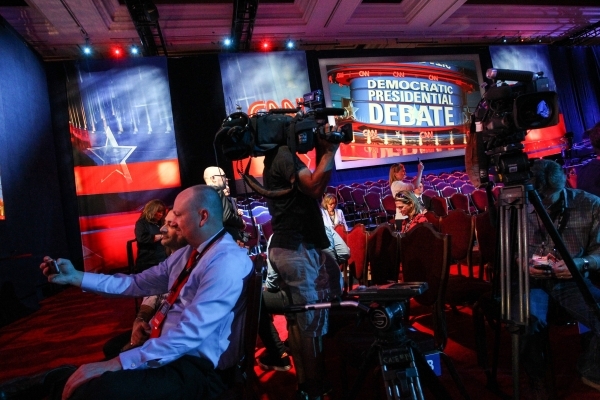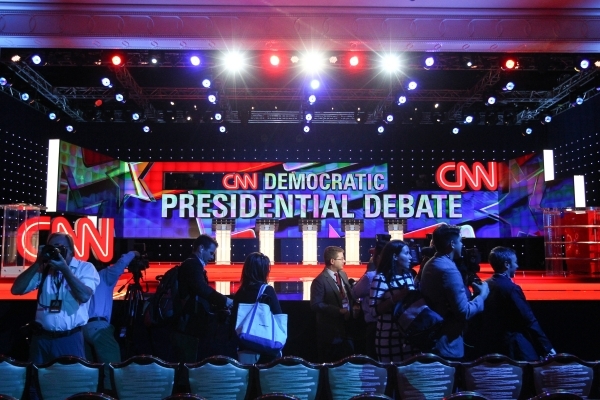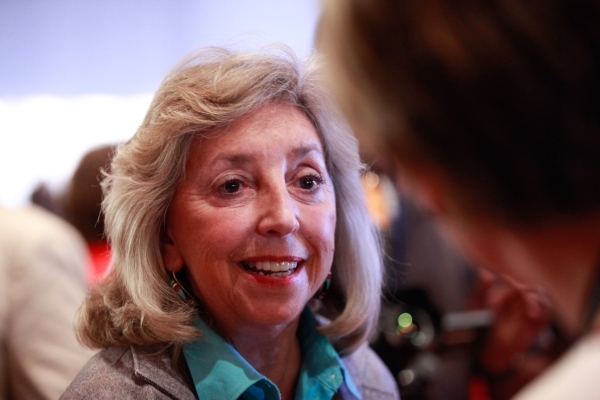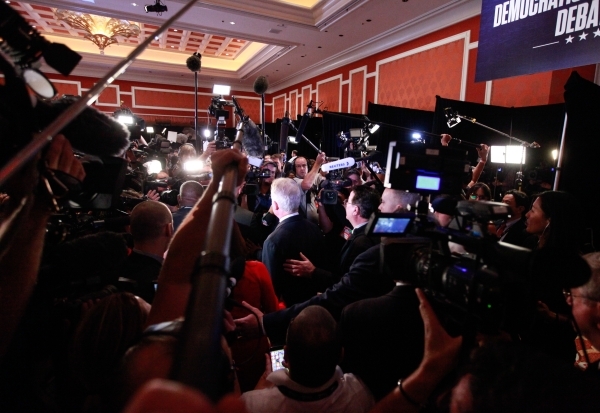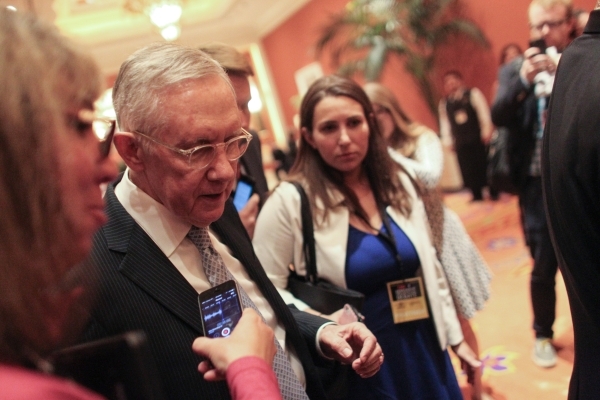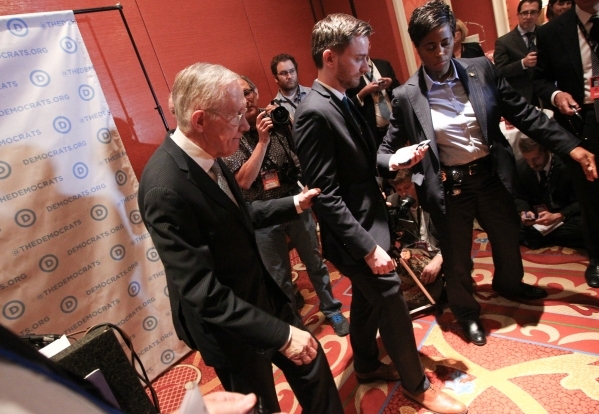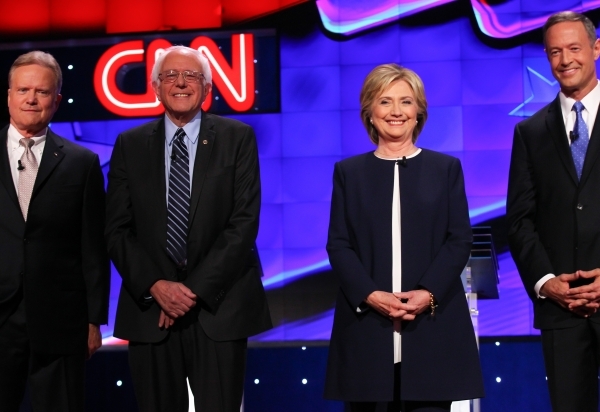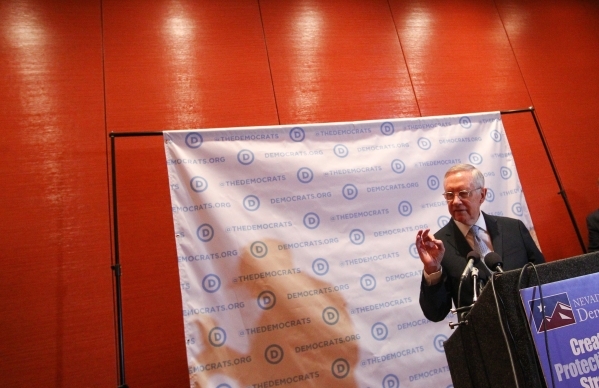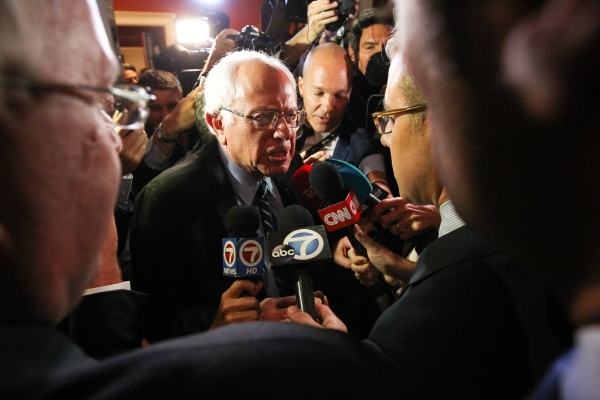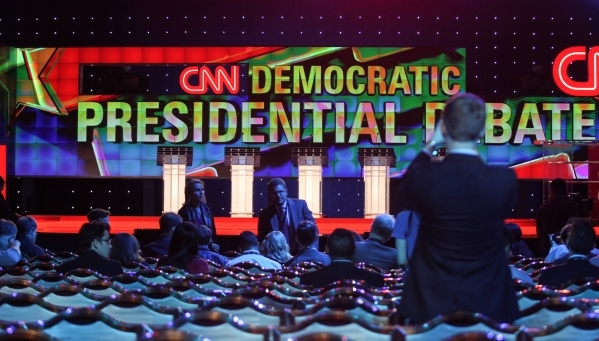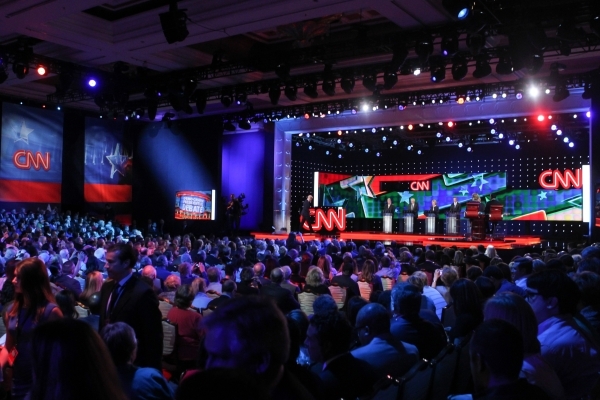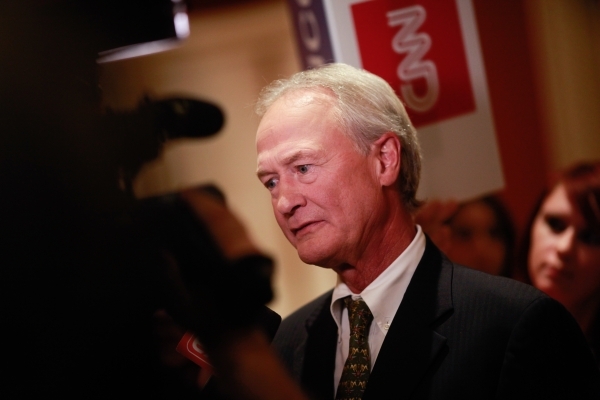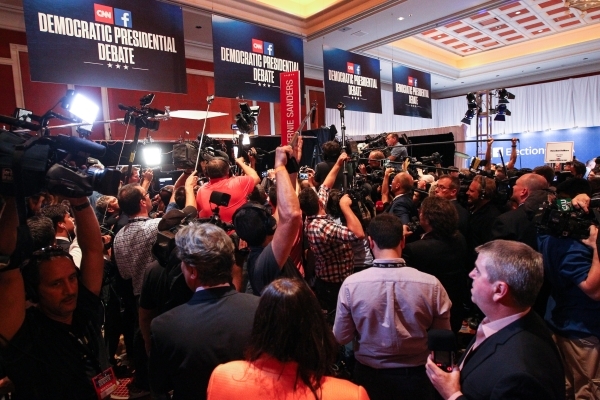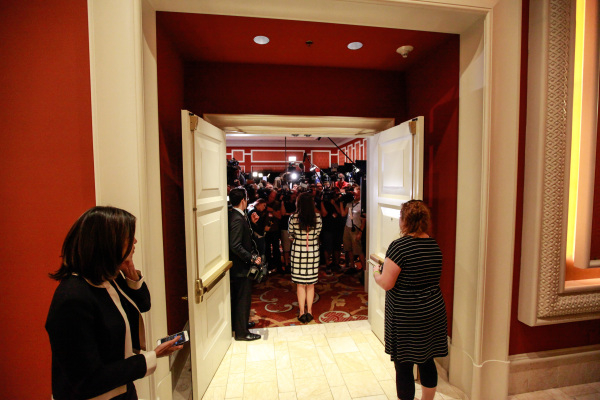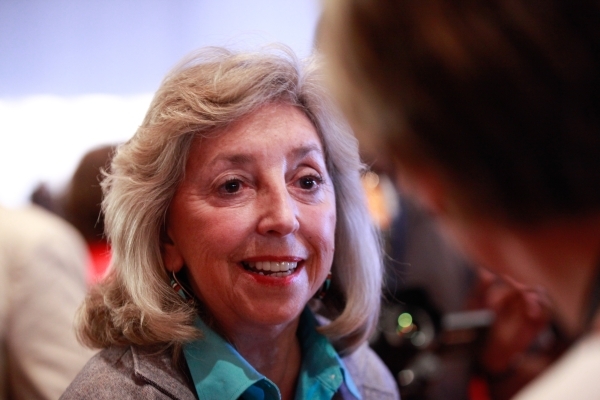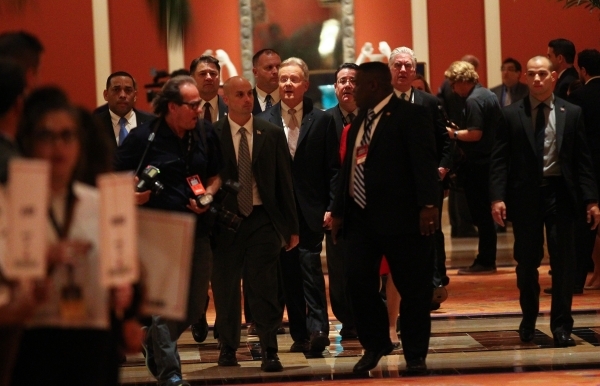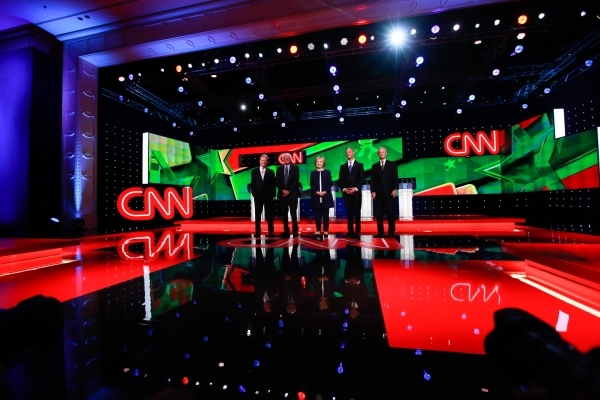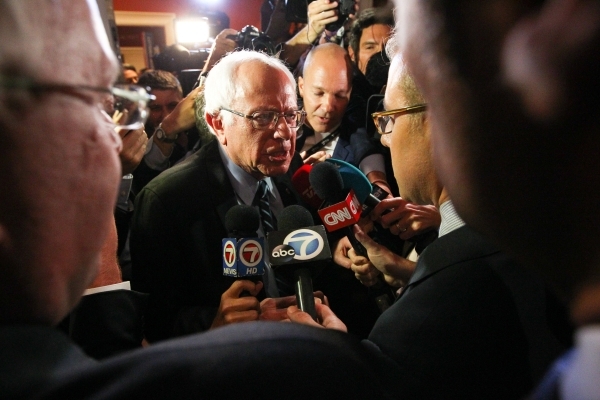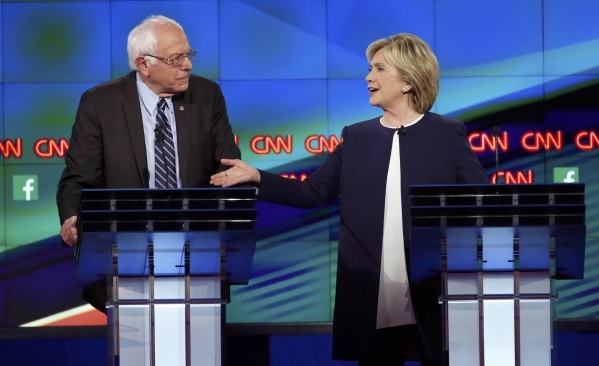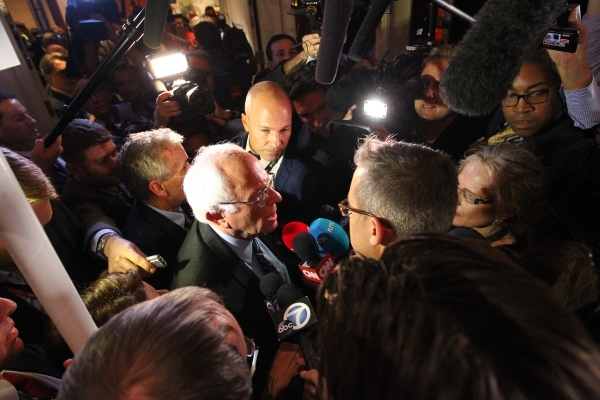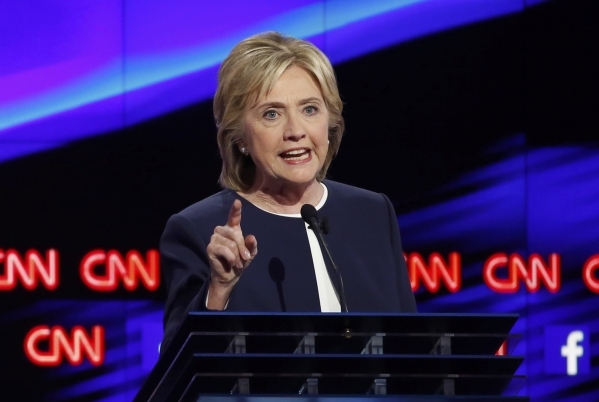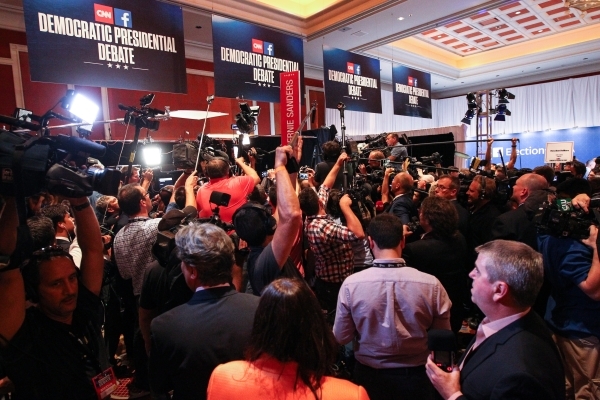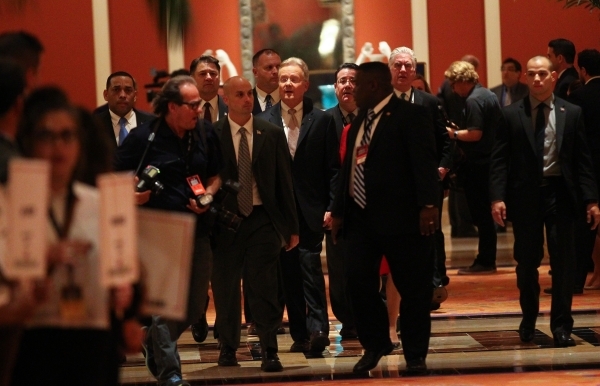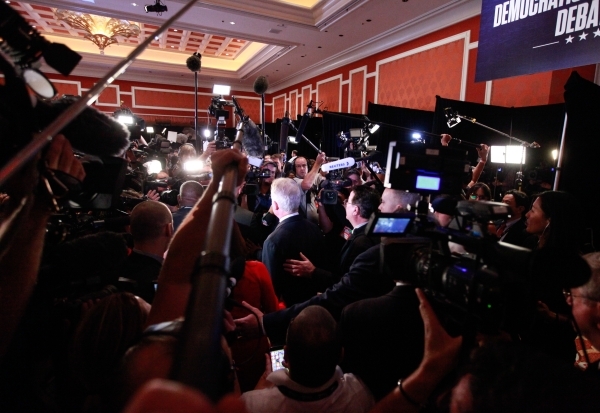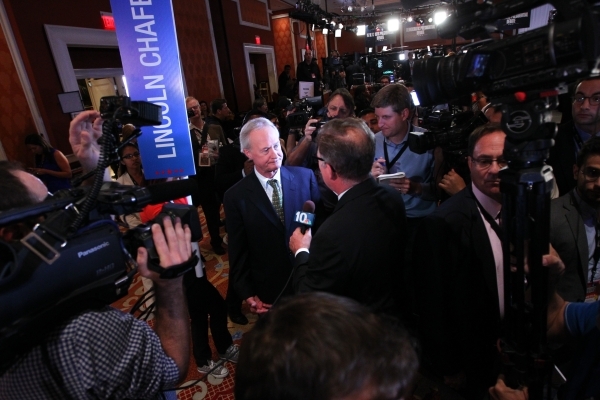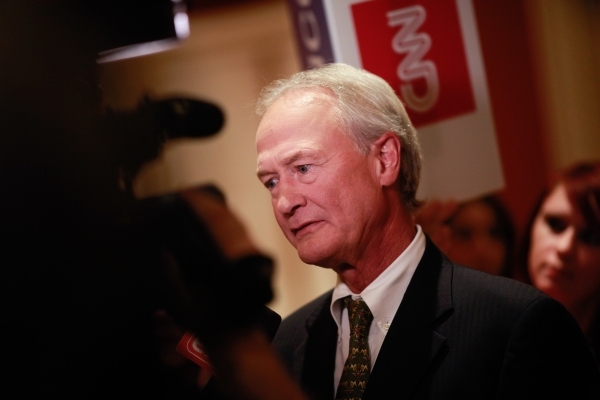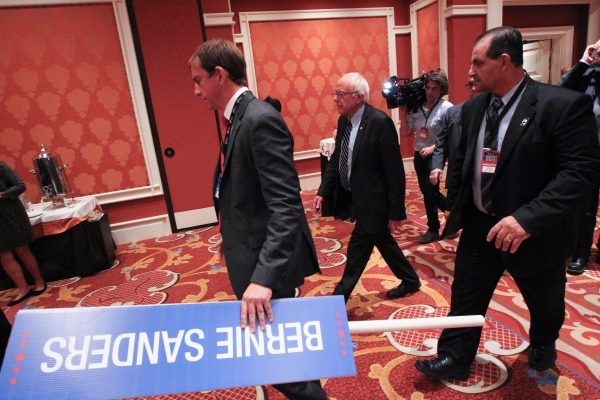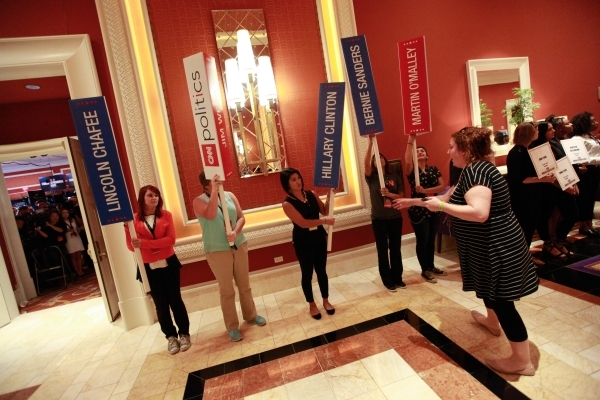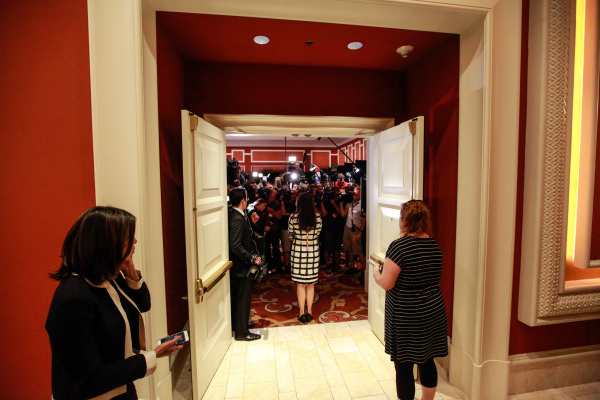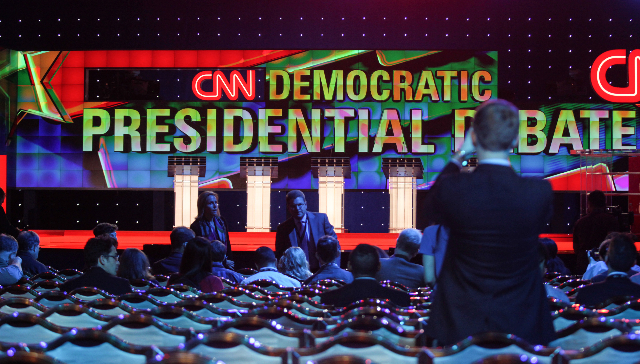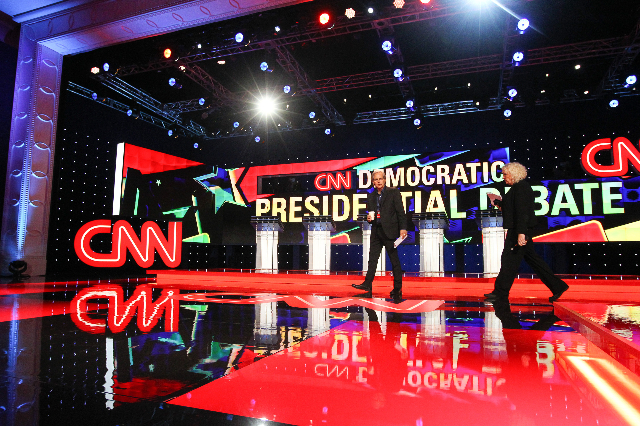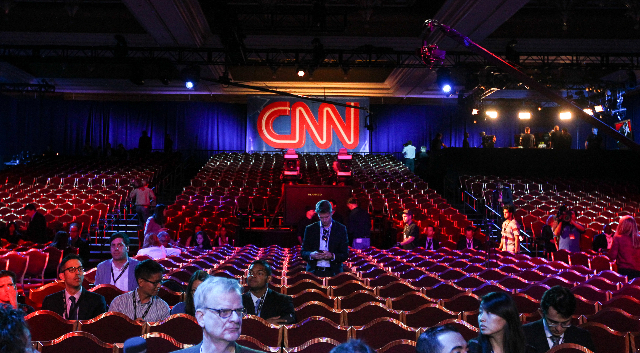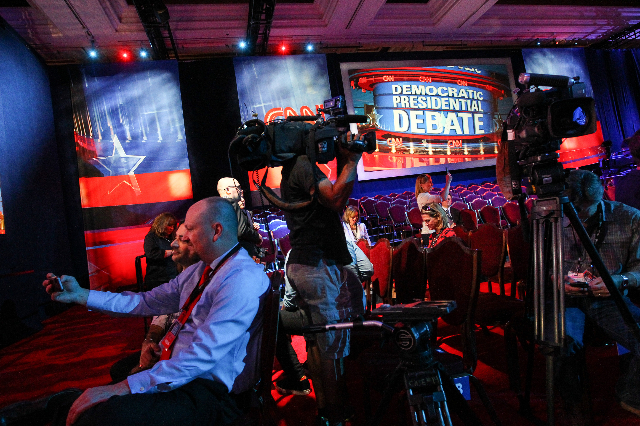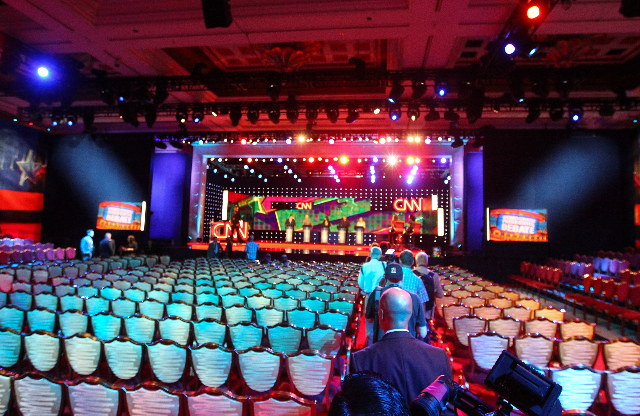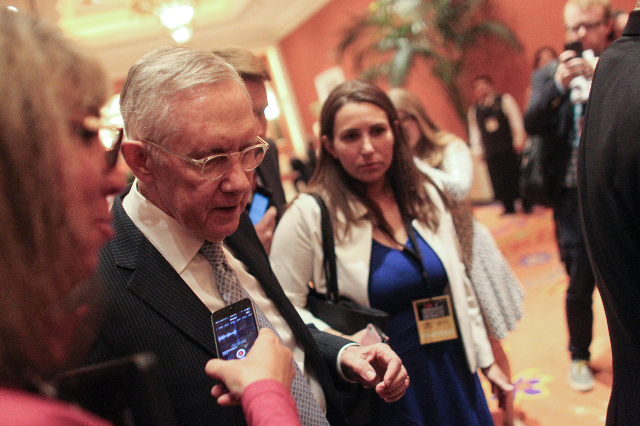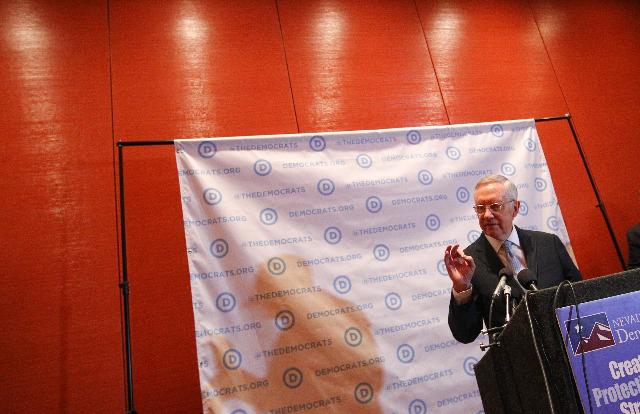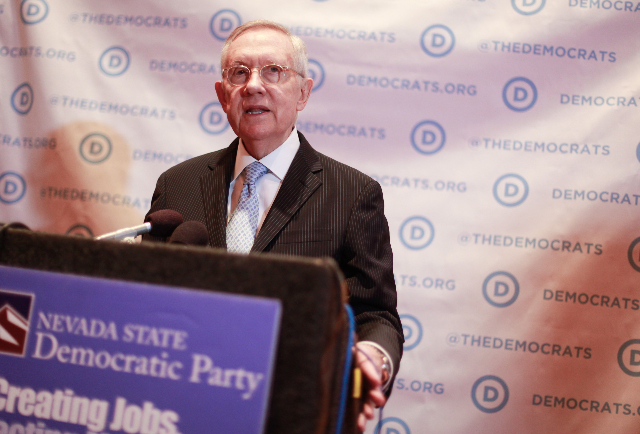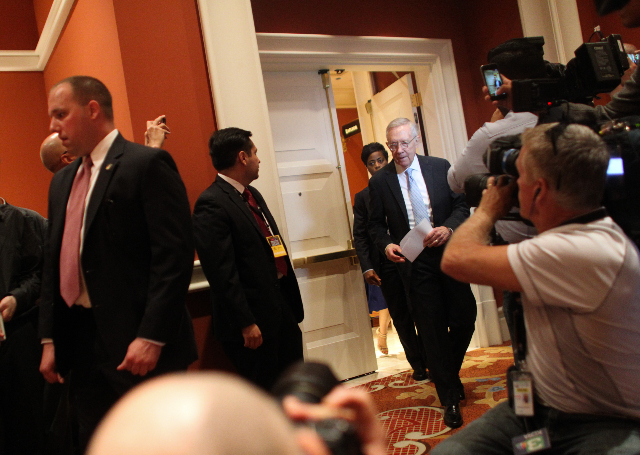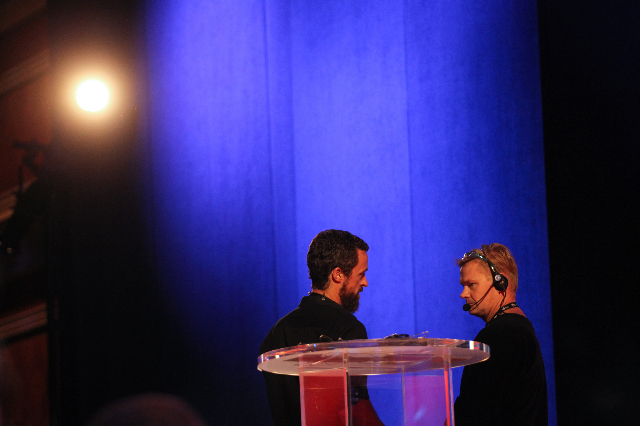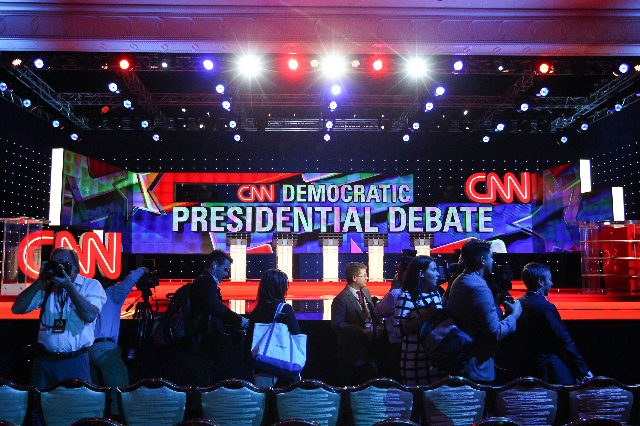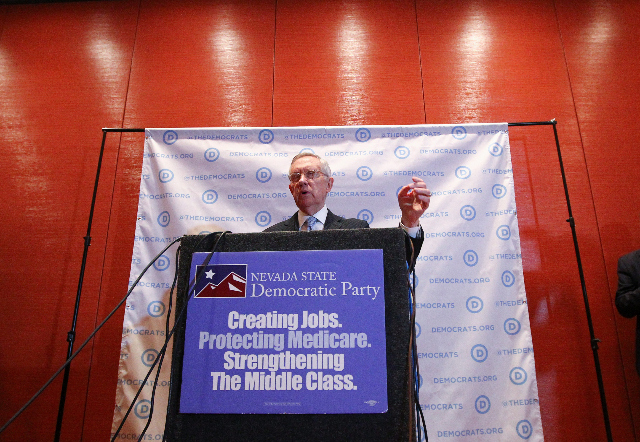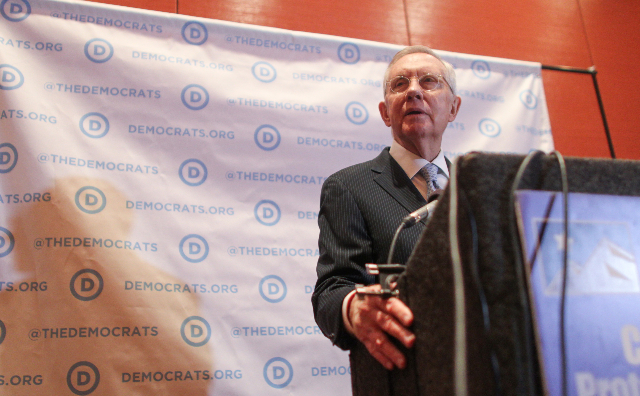In Vegas, Dems identify common enemy: the GOP — PHOTOS
Gun control, immigration reform and taking on Wall Street to address income inequality were among the most passionately debated topics as five Democratic presidential contenders met for the first time Tuesday night in Las Vegas.
The two front-runners, Bernie Sanders and Hillary Clinton, found surprising common ground midway through the debate, agreeing that the media and Republicans had focused too much on Clinton's use of a private email server as secretary of state.
After Clinton said her use of the server was allowed by the State Department, but "wasn't the best choice," Sanders jumped to her defense.
"Enough of the emails," Sanders said. "Let's talk about the real issues facing America."
With a smile, Clinton replied, "Thank you, Bernie!" and the two shook hands as the crowd cheered.
About 1,300 people watched the debate live at the Wynn Las Vegas. The event, aired and moderated by CNN and sponsored by Facebook, lasted more than two hours.
The five candidates were Clinton, the former secretary of state and first lady; Sanders, a U.S. senator from Vermont; former Maryland Gov. Martin O'Malley; Jim Webb, a former U.S. senator from Virginia; and Lincoln Chafee, a former governor and former U.S. senator from Rhode Island.
Clinton, the front-runner in polls, went into the debate with the most to lose. Besides her, the most visible candidate has been Sanders, who called for a political "revolution" to reclaim democracy from a small group of billionaires.
The three other candidates had attracted little attention to their campaigns before Tuesday, making the debate their introduction to many voters. It was unclear how much difference Tuesday will make, though: A New York Times analysis showed the amount of time the candidates spoke matched their standing in the polls coming in. Clinton spoke the most, trailed slightly by Sanders, while O'Malley, Webb and Chafee trailed far behind.
Unlike recent Republican debates that turned bitter, Tuesday's Democratic forum featured many points of agreement. Though they differed on details, candidates agreed on the need to address income inequality, make college more affordable and reform the criminal justice system to address racial disparities.
They also agreed on how important it is that the Democratic nominee — whoever it turns out to be — wins the White House next year, not a Republican.
At different points, Clinton and O'Malley each noted how different the tone on stage was from that of Republicans, especially on immigration. Clinton mentioned her trip to Las Vegas in May, when she called for a path to citizenship for people in the country illegally.
O'Malley said that on many of the areas where candidates broadly agreed on principles, such as gun control and immigration reform, he had gotten changes as governor of Maryland.
Sanders drew criticism for his mixed record on gun control, which Clinton said included votes against the Brady gun control bill and to give gun manufacturers immunity from lawsuits. Sanders called the latter issue "complicated" and repeatedly noted that views on guns are different in his rural state of Vermont.
The candidates also clashed on the 2002 measure to authorize the war in Iraq. Chafee and Sanders voted against it in the Senate, while Clinton voted for it.
Chafee said the vote calls Clinton's judgment into question. Clinton has called the vote a mistake. But she swiftly defended herself, pointing out that President Barack Obama tapped her for secretary of state despite also criticizing that vote.
"He valued my judgment," Clinton said.
When the candidates were asked about Nevada's upcoming ballot initiative on recreational marijuana legalization, Sanders said he would vote for it. That prompted cheers outside on the Strip from people watching the debate on giant screens or just passing by. Clinton said she had not made up her mind on recreational pot and believes more research is needed. But she said she supports medical marijuana.
Nevada was mentioned at other points during the debate, most notably during discussions of clean energy and immigration. Clinton also said a young Nevada student had told her the most difficult thing about college should not be paying for it.
Nevada is a swing state that both parties want to capture in 2016. Its February caucuses — the first in the West — could help determine who Democrats and Republicans nominate for president. And the state's issues offer ammunition to candidates touting their plans for immigration and the economy.
Democratic candidates plan to have five more debates, also in states with early presidential caucuses or primaries: Iowa, New Hampshire, South Carolina, Florida and Wisconsin.
And there will be more debates in Southern Nevada. Republican contenders plan to debate in Las Vegas in December. Next year, the final presidential debate before the November general election will be in Las Vegas.
— Las Vegas Review-Journal writers James DeHaven and Wesley Juhl contributed to this report. Contact Eric Hartley at ehartley@reviewjournal.com or 702-550-9229. Find him on Twitter: @ethartley. Contact Ben Botkin at bbotkin@reviewjournal.com or 702-387-2904. Find him on Twitter: @BenBotkin1



